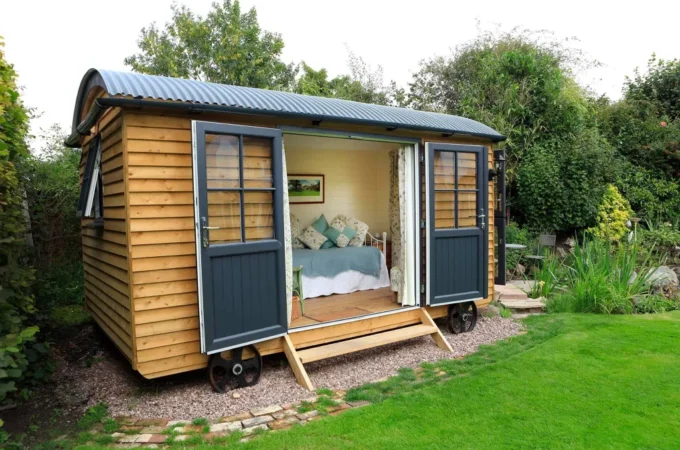
The Hidden Costs when Buying a House
Buying a house isn’t cheap, but there may be a number of hidden costs that you aren’t already aware of. Read on to find out more…
There are few events in life that are as exciting as buying your own house. It signals a new chapter in your life, where you can live independently and build a strong foundation for you and your loved ones.
But, as you’ll be well aware, buying a house isn’t exactly cheap. Sure, you can get a mortgage to help subsidise the value of your new home, but you’ll still need to save up a lot of money to pay for a deposit – and that mortgage isn’t going to pay itself!
That’s not all, either. There are a number of additional, hidden costs to buying a house that could easily catch you cold! So, if you’re already considering working with solicitors near Hayling Island, Hampshire, Hertfordshire or wherever you live to sort out a house purchase, then you’ll want to make sure you’re fully clued up. Here are some notable hidden costs you should be aware of when you’re buying a house…
8 Hidden Costs to Buying a House
1. Legal Fees
If you’re looking to buy a home, then you’re going to need the support of a licensed conveyancer. This means that you’ll to need to pay several legal fees, which the solicitor in question will charge.
The sort of legal fees a conveyancer might charge for include transferring title deeds and finalising your mortgage arrangement. These are essential if you’re buying a house, but they can be expensive – around the £1,000 mark.
2. Disbursements
Conveyancing fees don’t start and end with the essential legal fees. You’ll also need to be prepared for disbursements, which refer to the various additional costs that are required to complete your transaction.
Examples of disbursements could include local searches that your conveyancer will carry out to make sure there are no issues with your house that need to be addressed. It could also include registering transactions at HM Land Registry.

3. Stamp Duty Land Tax
Stamp Duty Land Tax is paid if you’re buying a property that’s worth more than £125,000. Far from ideal, but it’s an unavoidable reality of the property market. The amount of Stamp Duty you pay will be proportional to the value of the property in question.
It’s not all doom and gloom though! You’ll be pleased to know that, if you’re a first-time buyer, you won’t have to pay Stamp Duty on properties less than £500,000. So, for most first-time buyers, Stamp Duty is something you’ll need to consider a little further down the line.
4. Buildings Insurance
Now, when you’re buying a house, the last thing you’re probably going to think about is what you’re going to do if it gets damaged or destroyed, right? Well, it’s something that you should at least have as a contingency plan.
Taking out buildings insurance will make sure that the cost of rebuilding your home is covered in the event of an unfortunate incident. In some cases, you may not be able to get a mortgage if you haven’t first taken this out.

5. Mortgage Valuation Fees
Speaking of mortgages, that brings us on nicely to the next hidden cost that many first-time buyers aren’t always aware of. In order to be approved for a mortgage, your lender may want to conduct a valuation survey.
This is to make sure that the property you are buying is worth at least as much as the lender is prepared to let you borrow. Not all lenders charge mortgage valuation fees but, if they do, the cost will depend on the value of the property in question.
6. Mortgage Arrangement Fees
Don’t think we’re done with mortgages just yet! Next on the list are mortgage arrangement fees, which need to be paid to your lender to have them set up your mortgage.
Mortgage arrangement fees can range from anywhere between a few hundred pounds to one percent of your mortgage. Some lenders may ask you to pay the fee up front and others will add it to your mortgage fees.
7. Electronic Transfer Fees
When you’re buying or selling a house, you’re going to end up coming across electronic transfer fees. As a lot of money is being transferred between hands within a short period of time, your conveyancer will carry a number of extra procedures to make sure that your money ends up where it needs to be.
This won’t be an extortionate fee – usually between £25 and £30 – but it should still be taken into consideration, so you know exactly where your money is going.
8. Leaseholder Fees
Place close attention to the type of property you’re buying. If you’re buying a leasehold property, you will only own the property for a fixed period of time.
Leasehold properties will have a number of years on the lease. If the time left on the lease falls to a certain level, the value of the property will significantly drop, making it very difficult to sell it on for a reasonable price. Far from ideal.
That means, if you’re buying a leasehold property with a relatively short amount of time left on the lease, you’ll have to pay to extend the lease. Leasehold houses are much less common than leasehold flats, but they do exist.

Are You Buying a House?
As you can see, buying a house can prove to be incredibly challenging, and the various additional fees that can crop are only likely to add to the pressures you’ll be facing. Hopefully, now that you have a better idea of some of the costs that can catch people unawares, you’ll be able to better plan your budget for your upcoming move.
Are you moving to a new house at the moment? Or do you consider yourself to be a property market aficionado? Feel free to leave your own pieces of advice in the comments below so we can get as much information out there as possible!




